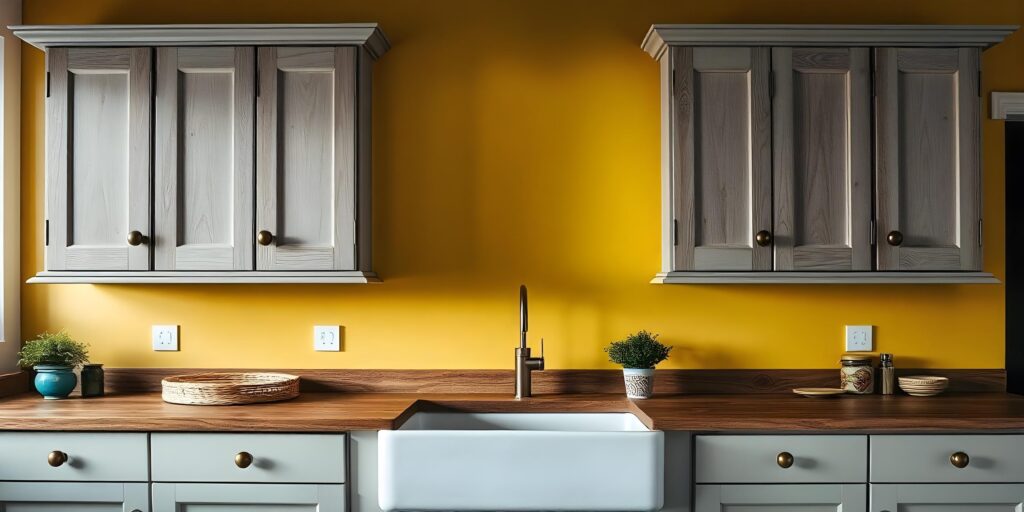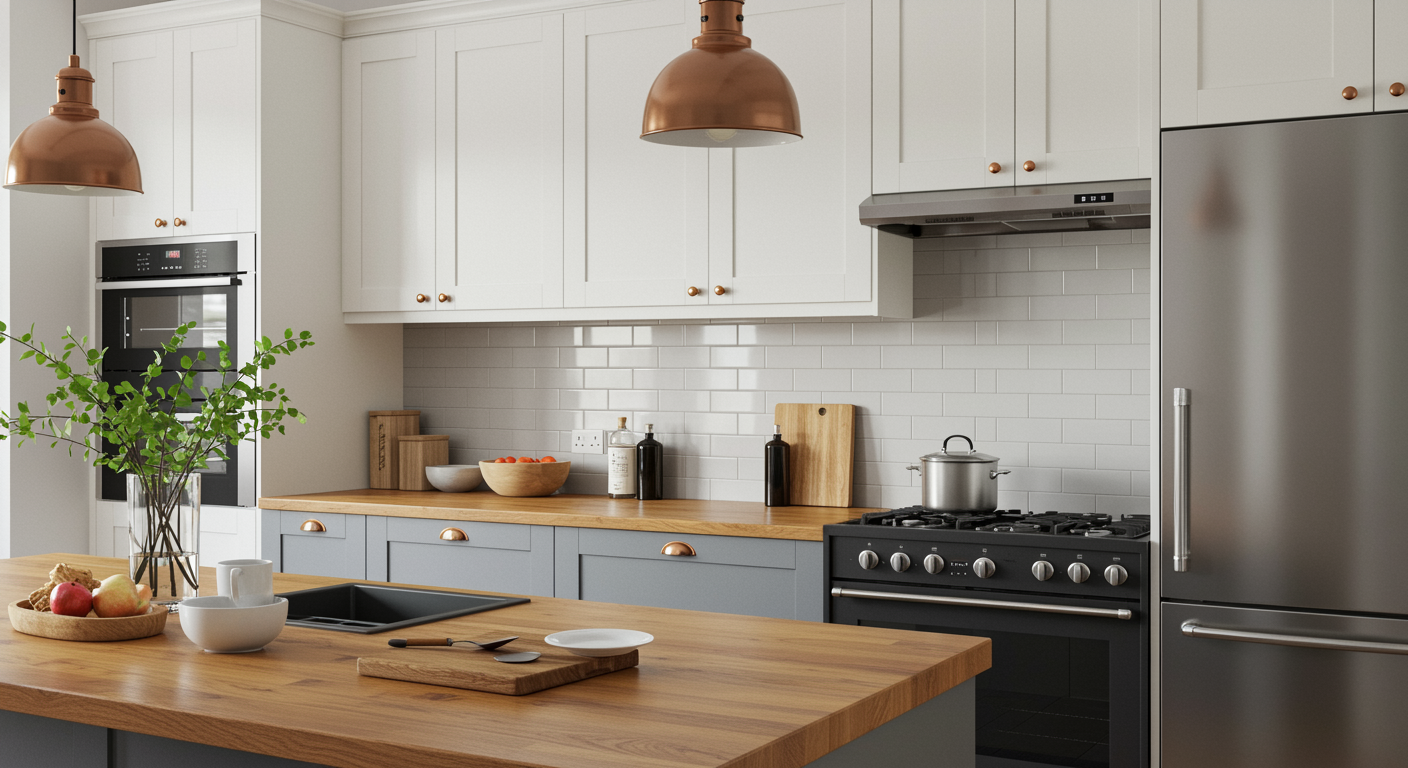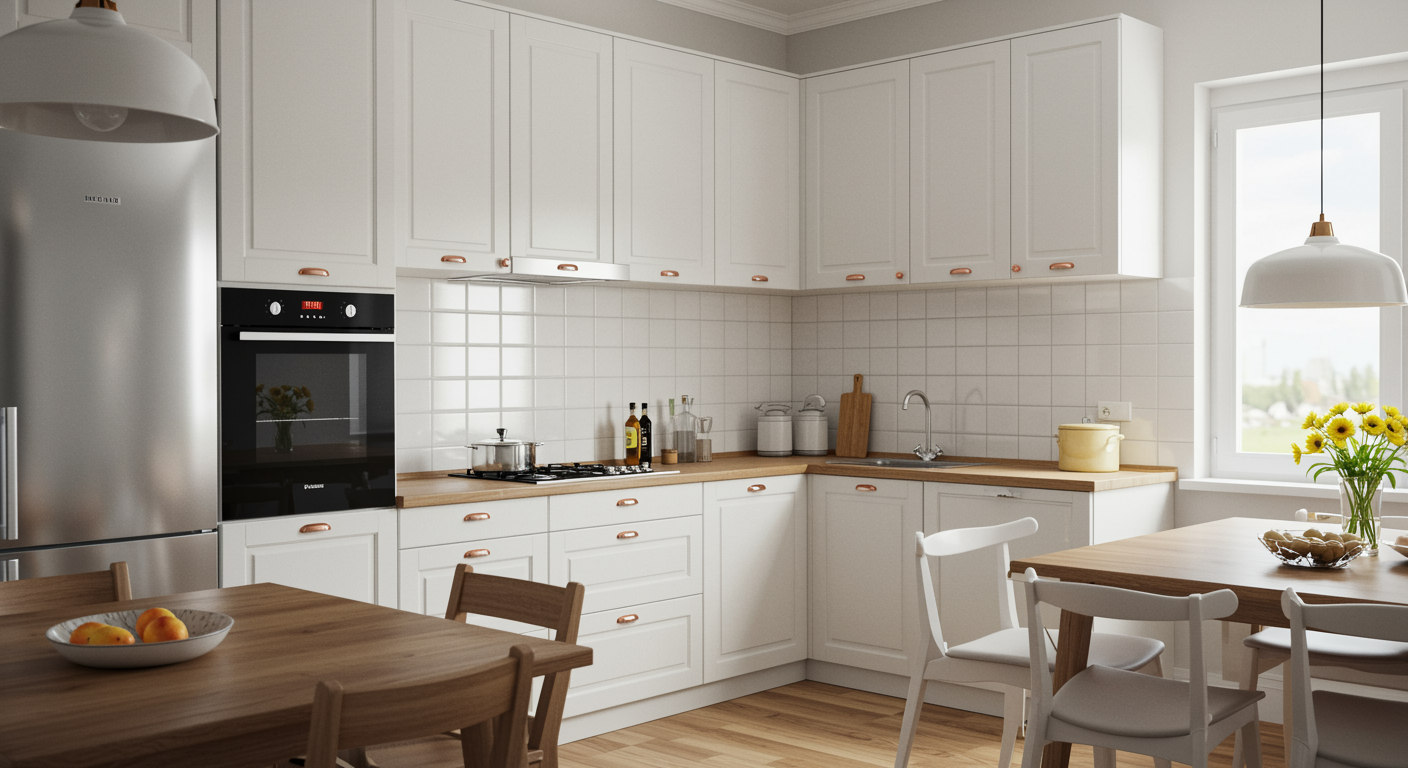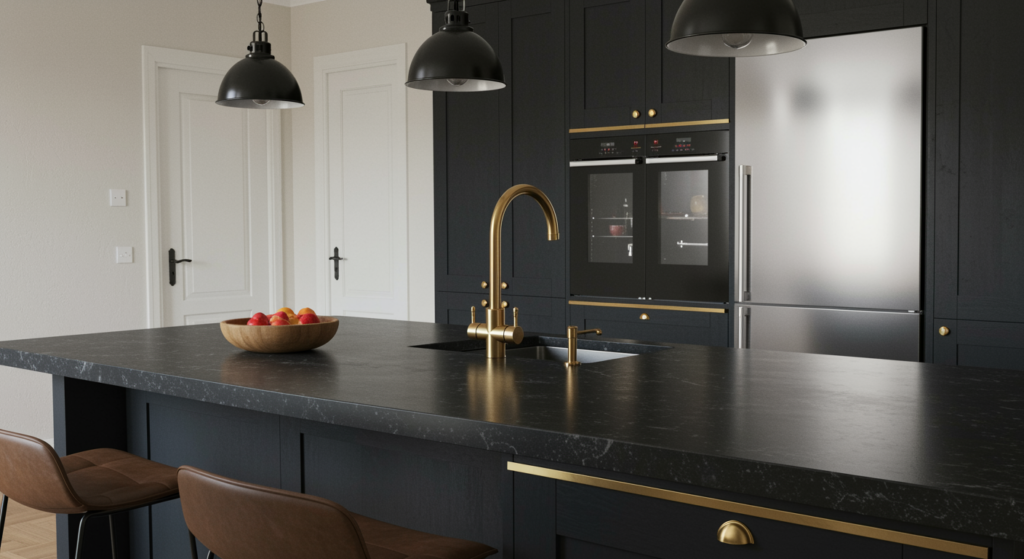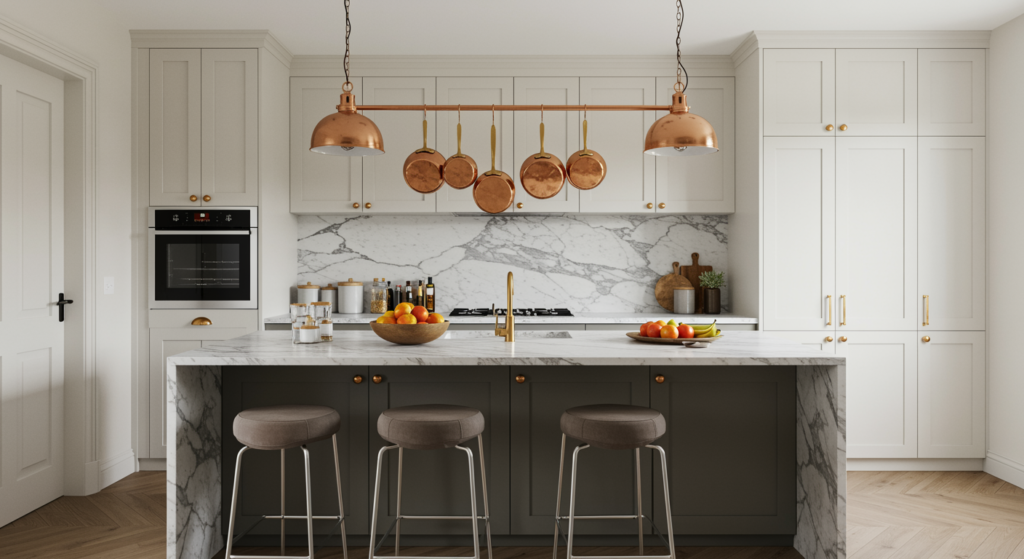Countertop installation can be a very tedious process and require specific attention to certain details. Here are some do not dos when installing countertops.
Countertop Installation: Do Not Skip Checking The Measurement
One of the very common mistakes that people make while preparing for countertop installation is not double-checking measurements. A single mistake can result in disastrous outcomes, such as a countertop that does not fit, awkward gaps, or edges interfering with appliances and cabinets. Precision means everything when it comes to kitchen or bathroom countertops.
Precise measurement of base cabinets, wall space, and cutouts for sinks or appliances should be triple-checked before one finalises an order. A minor mistake, such as failing to take into consideration that the walls are not perfectly square, can result in a whole host of mishaps in the entire installation process. Using a tape measure is just not good enough — laser measuring tools are mostly more accurate and help eliminate most guesswork. But most people bypass the professional and take the measurement themselves. The overconfidence brings a series of very costly mistakes when custom or pre-cut countertops are involved.
During installation, faulty measurements may reveal themselves in the form of uneven alignment as installers scramble to make last-minute adjustments that could affect the overall finish. Post-installation, poor measuring repercussions may be permanent. Ill-fitting countertops will not only wreck the aesthetic of a room but can also pose some functional problems, such as water damage due to gaps or loss of stability.
Save yourself this headache and measure not twice but thrice, with the help of a professional to make sure the measurement is as accurate as it can get. Save your time, money, and frustration by going through this pre-installation step and enjoy perfect-fitting countertops.
Countertop Installation: Do Not Mistakenly Choose The Material
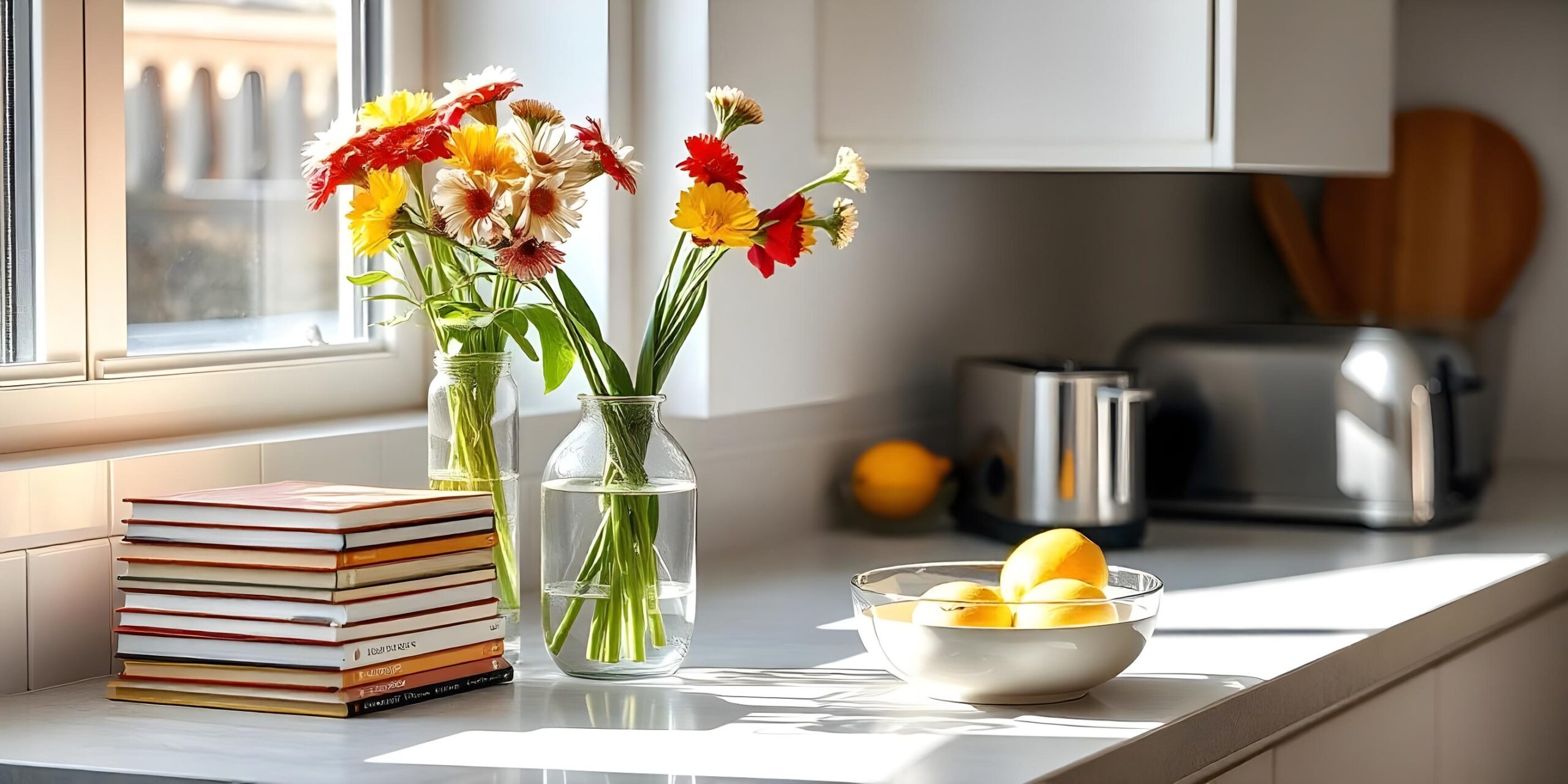
Probably the largest mistake made prior to countertop installation is poor material selection, which often leads to regret over a period of time. The countertop choice is not merely an aesthetic option but rather must be suitable to your way of life, use of the kitchen, and general maintenance habits. For example, selecting marble without being aware that it etches and stains can be a source of frustration for a household that is regularly exposed to acidic ingredients like lemon juice or vinegar.
Similarly, a family will regret ever installing butcher block countertops since these have to be sealed frequently and can be easily scratched or damaged by water. While quartz is durable and low maintenance, it can be pricier upfront. In real-world installation, poor material choice often results in installation delays or added expenses because maybe the countertop isn’t supported by the current structure or its support system.
@ampquartzcabinets Boleh jadi ‘dapur adalah maut’ kalau kabinet dapur korang dah usang or rosak tauuu😨 Berminat buat dapur baru? PM kita sekarang! Link di Bio🤭 #iparadalahmaut #dapursederhana #ampquartz #customcabinet
♬ suara asli – ❄️ – ❄️
Once installed, owners could be plagued with surprise maintenance headaches if the material is not appropriate for them. For example, missing a routine resealing on granite can cause permanent stains, and using the wrong cleaning products on quartz can dull its finish.
Ultimately, choosing the wrong countertop material can make your dream kitchen a maintenance nightmare. To avoid this, take time to research, consult professionals, and consider how each material will function in your space both now and in the future. A well-chosen material means a countertop that looks great and performs well for years to come.
Countertop Installation: Do Not Handle Countertops On Your Own
Installing the countertops, it is important always not to handle the countertop alone. A countertop made of such heavy materials like granite, marble, or quartz can weigh upwards of hundreds of pounds and cannot; therefore, easily be lifted or manoeuvred. Improper handling of installation can easily lead to an accident-including injury and even possible damage to the countertop itself.
Apart from dropping or chipping the surface, trying to move such heavy slabs without any assistance might lead to straining of your muscles or serious back injuries. Not only this, misaligning the countertop due to poor handling could lead to gaps or unbalanced levels after its placement. Even though you are a DIY guy, countertop installation is something that requires not only strength but also precision. Having extra hands ensures the countertop will be moved safely and positioned just right, greatly reducing the possibility of mistakes that can take away from a professional finish.
Most larger countertops will require specialised equipment, such as suction cups or dollies, for proper installation. It will ultimately save your time, prevent expensive mistakes, and most importantly, keep you safe and protect the integrity of the material. Hence, never attempt to handle countertops on your own; rather, at least get help from another person, or better still, let professional people do the job for you with much ease and skill.
Countertop Installation: Forgetting To Apply Sealant
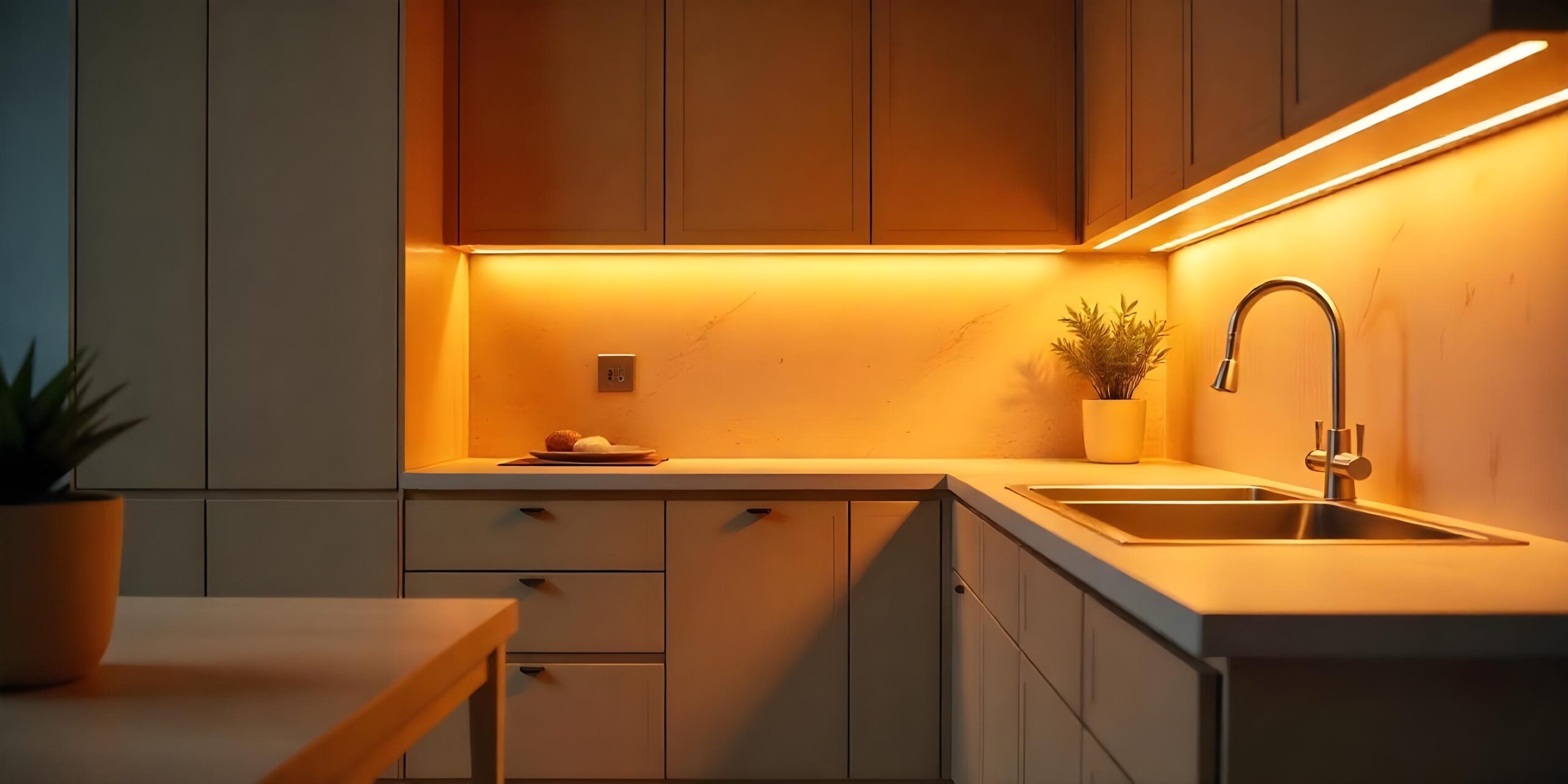
Another critical mistake that people make in the process of countertop installation is trying to skimp on the application of sealant to such porous materials as granite, marble, and soapstone. Application of sealant is important in providing a kind of barrier that protects the countertops against stains, moisture absorption, and general wear and tear that may occur through time. This, if not properly sealed, can let liquids, oils, and substances penetrate easily and cause discolouration or damage.
@ampquartzcabinets Three functionalities in a kitchen that you won’t regret: 1. A full pull out larder for optimal storage space 2. Hidden outlets to easily power all kitchen appliances and computers 3. An integrated fridge to make your kitchen look more stylish Do you have any of these features? 👀 #smartkitchen #smartstorage #kitchencabinet #kabinetdapurjohor #ampquartz
♬ Anaconda – Nicki Minaj
This can easily happen with granite and marble, for instance, since these are materials that are inherently porous, especially for high-usage areas like kitchen countertops. Not all countertops are pre-sealed, and even then, most would need resealing after some time, based on usage. Without application or resealing over time, stains can set in that are very difficult or impossible to remove. In addition, not sealing promotes bacterial growth, especially in areas where the countertops will be coming into contact with food.
For the best results, the sealant should be applied immediately after installation when the countertop is clean and dry. Allow this process to coat the entire surface completely, making sure the sealant dries and cures before usage of the countertop. Although a very minute thing, omission in the application of sealants could cut the life of your countertop considerably and render it susceptible to stains, bacteria, and wear and tear generally.
Countertop Installation: Skipping Regular Maintenance
Perhaps the most important thing to remember following your countertop installation is never to skip its regular maintenance. Poor service will lead to some irreparable damage and costly repairs over time. Different materials, different maintenance routines — it is vital to follow what the manufacturer has recommended.
For example, natural stone countertops like granite and marble are porous, or permeable to liquids, which provides an avenue for potential stains and discolouration if not sealed regularly. If this resealing process is not done every year or so, then the risk of permanent damage from spills involving wine, coffee, or oils may occur. On the other hand, man-made stones, like quartz, can be rather forgiving in their requirements for sealing but nevertheless must be frequently cleaned and cared for in order for the brilliance to be consistently sustained.
Not only does regular cleaning other than sealing reduce this build-up, but dirt, grime, and soap scum often appear well on lighter-coloured countertops. A soft cloth and pH-balanced cleaners should be used to clean them, as harsh cleaning products or rough tools can scratch or dull the surface.
Furthermore, minor problems, such as small chips or cracks, should not be allowed to stay but instead repaired immediately to avoid bigger ones. Prompt attention will enhance beauty and durability for your countertop. Regular maintenance does not take much time but can go a long way in ensuring that your investment lasts for years without compromising on its look or functionality.
Sign Up For Kitchen Design Ideas
Join over 5,000 homeowners subscribed to our newsletter!

